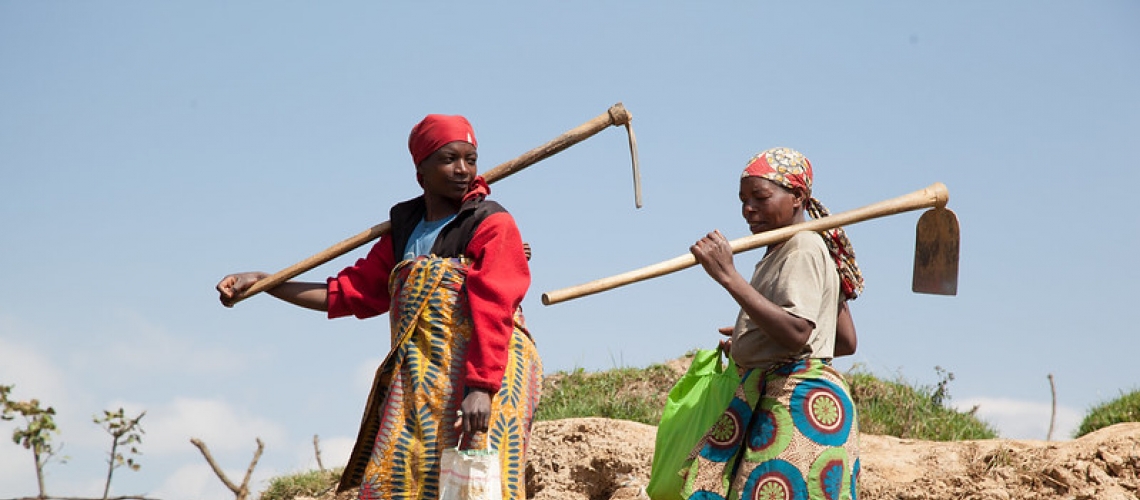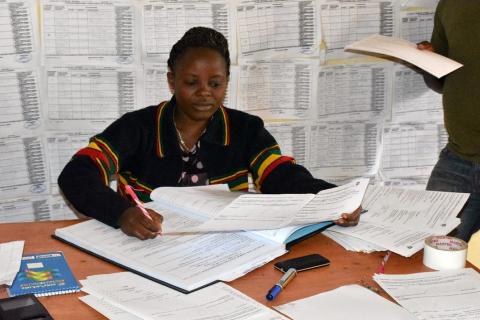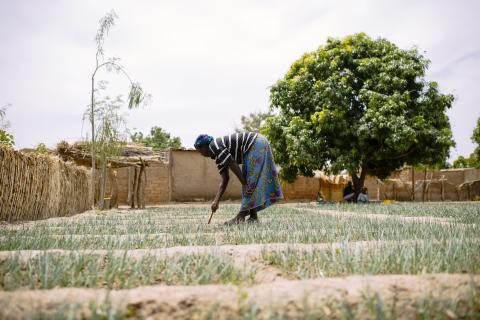International Women’s Day today challenges us to ‘break the bias’. This is key when it comes to the climate crisis as women are more vulnerable to climate shocks, yet less able to build resilience due to the cultural and legal biases that frustrate their agency over land and resources. Subjective data offers us ways to spot these biases and target ways of breaking them.
The intersections between gender and climate are gaining more attention. Next week’s CSW conference led by UN Women will focus on climate change and disaster preparedness, while last week’s IPCC climate report highlighted three ways in which climate adaptation, gender equality and secure land rights overlap.
First, the report states with high confidence that gender inequality makes women more vulnerable to climate impacts, especially in terms of crop management. This is in part due to the ‘systematic differences’ that women face in their access and control over land and property. In parts of Africa and the Middle East, less than a quarter of women own land. Without access and control over natural resources, women are less resilient to climate shocks.
Second, insecure land tenure can exacerbate the negative impacts of climate change by forcing women to adopt unsustainable coping mechanisms. Potentially damaging adaptation is profoundly gendered due to women’s unequal access and control over resources, including land. In rural settings, negative coping strategies lead to deforestation and land degradation, wiping out biodiversity and ecosystems while ramping up greenhouse gas emissions.
Women with insecure land tenure may also be prevented from adopting climate-smart agricultural innovations, such as on-farm diversity and intercropping. Tenure insecurity also strongly limits the options for urban women looking to adapt to growing climate threats, such as investing in new infrastructure to buffer themselves from floods.
Third, the report highlights that insecure land tenure not only exacerbates the negative effects of climate change on biodiversity and ecosystem loss, but on gender equality as well. Where tenure rights are unclear, large-scale afforestation (including via REDD+), bioenergy and conservation projects can work to entrench existing inequalities experienced by marginalised groups, including women.
Where social, economic and cultural rights are privatised, including rights over land and the carbon credits that can be earned from it, they can act as both a sword and a shield for privileged dominant interests – typically men in most contexts. This is where climate adaptation can misfire and actually make women even more vulnerable to climate shocks, feeding into the loop of negative coping mechanisms and bad environmental outcomes described above.
It is therefore essential to tackle systematic gender, land and other inequalities as part of an inclusive adaptation response. But it isn’t always clear how to go about this. Awarding land or property to women won’t increase their adaptation and resilience to climate change if they lack access to other resources, such as finance, farm inputs, knowledge or training. Education programmes, access to technology, information and credit, and the creation of women’s associations and cooperatives are therefore needed alongside efforts to strengthen land tenure security.
But in settings where women themselves are viewed as the ‘property’ of men, even these measures won’t help. Women will struggle to exercise their rights because of the prevalence of gender-discriminatory norms and attitudes. If they attempt to do so, they may be sanctioned, marginalised or even suffer violence. One of the most important challenges will therefore be breaking down the cultural biases around the role and positions of women, as stressed by this year’s Women’s Day.
The report also highlights that community-based adaptation strategies offer an opportunity to boost adaptation to climate change while achieving gender equality. This applies to rural as well as urban areas, including tenure-insecure informal settlements. Ensuring such approaches are successful will require a better understanding of the power dynamics within communities, including key issues such as land tenure arrangements, ownership, and the role of men and women in decision making.
Perceptions data on the attitudes, opinions and preferences of men and women, such as those gathered by land rights initiative Prindex, can help lift the lid on the gender divide in the home and in communities. Empowered with a better understanding, we can design climate actions that promote gender equality, not worsen it. This would not only be good for women and society, but for the climate and environment too.
This blog was originally posted on the ODI website.





